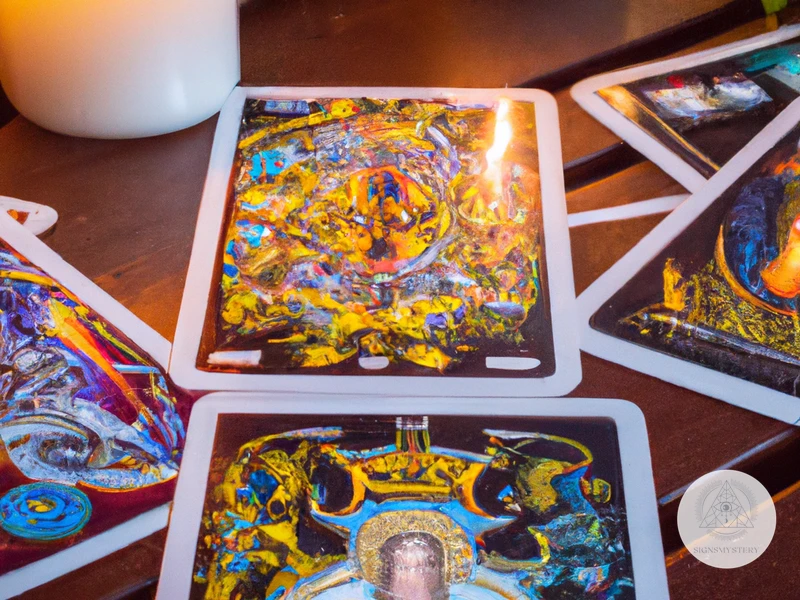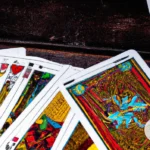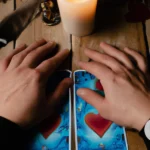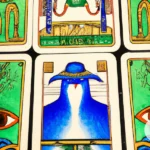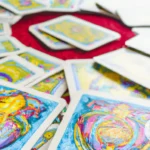Tarot cards have been around for centuries, used by diviners and fortune-tellers. However, their significance has gone beyond the realm of mysticism and spirituality, finding a place in popular culture. Despite their vague and mysterious nature, Tarot cards have been referenced in various forms of media, from literature to movies, fashion, and social media. This begs the question: what makes Tarot cards so significant in popular culture? In this article, we will dive into the various ways Tarot cards have influenced and shaped modern popular culture, and explore their significance in today’s society.
The Beginnings of Tarot Cards in Popular Culture
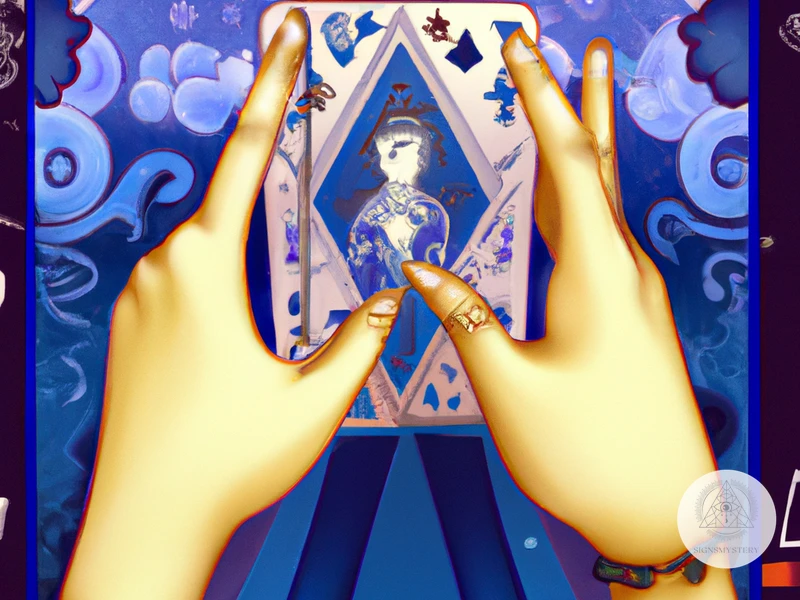
The connection between Tarot cards and popular culture is undeniable, but have you ever wondered how it all began? The roots of Tarot in popular culture can be traced back to centuries ago when these cards were primarily used as playing cards or for divination. However, the spread of Tarot in popular culture gained momentum through its influence in various forms of art, music, movies, TV shows, and even video games. To gain a better understanding of the significance of Tarot in popular culture, let’s take a closer look at the beginnings of Tarot cards’ influence on our society. Explore the evolution and symbolism of Tarot cards, the history of famous Tarot card decks creators, and the Tarot’s relationship with Hermetic philosophy by checking out our related articles Tarot Card’s Origin in Europe, The Evolution of Oracle Cards History, Medieval Tarot in Europe, Symbolism of Tarot and Oracle Card, Connection of the Art of Tarot to Hermetic Philosophy, The History of Oracle Decks, and The Rise of Oracle Cards.
The Use of Tarot in Literature
Tarot cards have long been a source of inspiration and symbolism in various works of literature. Many authors have incorporated tarot imagery into their works, using the cards as motifs, symbols or even plot devices. The use of tarot in literature adds an element of mystery and depth to a story, inviting the reader to interpret the meaning behind the cards and their relevance to the characters and events.
Examples of famous literary works that use tarot cards include Neil Gaiman’s “The Sandman” graphic novels, where each issue is named after a card in the Major Arcana; and Italo Calvino’s “The Castle of Crossed Destinies”, where the characters use tarot cards to communicate their stories, as they have lost the ability to speak.
In “The Sandman”, Gaiman uses the tarot cards as a way to explore the themes of destiny and free will. The main character, Dream, also known as Morpheus, is sometimes depicted holding a card from his tarot deck, implying that he is in control of the story’s direction. On the other hand, the cards themselves may have a mind of their own, suggesting that fate cannot be completely controlled.
In Calvino’s “The Castle of Crossed Destinies”, a group of travelers come to a castle where they have lost their ability to speak. They use tarot cards to communicate their life stories and experiences to each other. The cards act as both tools for self-expression and a means to connect with others.
These examples demonstrate how tarot cards can be used as symbols in literature to represent larger ideas and themes. Whether as a plot device, a motif or a means of communication, tarot cards add layers of meaning and depth to literary works, and further showcase the importance of tarot in popular culture.
If you are interested to know more about famous tarot card decks creators, check the list we have made for you.
Tarot in Music and Songs
For many years, tarot cards have been a source of inspiration for musicians and songwriters. The symbolism of the cards is often used as a metaphor in lyrics, allowing songwriters to convey complex emotions and ideas in a way that is both poetic and accessible.
Some examples of songs that incorporate tarot imagery include “The Tower” by Hozier, which references the meaning of the card as a symbol of sudden upheaval and change. “The High Priestess” by Alanis Morissette uses the card as a symbol of intuition and inner wisdom.
In “The Magician” by Sarah Brightman, the card is used as a symbol of transformation and metamorphosis. The lyrics describe the magician’s ability to “transform the night into day” and “make the impossible real.”
Another example is “The Moon” by The Microphones, which uses the card as a symbol of uncertainty and the unknown. The lyrics describe the moon as a “mirror of the light of day,” reflecting the world in a distorted and mysterious way.
Many musicians and songwriters are drawn to the tarot because of its rich symbolism and timeless themes. Whether used as a tool for personal growth or as a means of artistic expression, the tarot continues to fascinate and inspire people from all walks of life.
Tarot in Movies and TV Shows
Tarot cards have been featured in numerous movies and TV shows over the years, often adding a sense of mystery and intrigue to the plotline. Here are some notable examples:
- The X-Files: In the ninth season episode “Improbable,” Mulder and Scully investigate a serial killer who is using the tarot to choose his victims.
- Penny Dreadful: This gothic horror series heavily features tarot cards and incorporates them into the plot in various ways, such as when the character Vanessa Ives consults them for guidance.
- Twin Peaks: In this 90s cult classic, the character of Agent Cooper uses tarot cards to help solve a murder case.
- Now You See Me: This film follows a group of magicians who use tarot cards as part of their performances and heists.
These examples demonstrate how tarot cards can be used as a storytelling device in movies and TV shows, adding an element of mysticism and suspense. The use of tarot cards in popular media also helps to increase its visibility and appeal to a wider audience.
Tarot in Video Games
Video games have become one of the most popular mediums for entertainment, and it’s no surprise that Tarot cards have made their way into this world as well. Some video games use Tarot cards as a storytelling mechanic, while others incorporate them as a gameplay element. Here are some examples of Tarot in video games:
- The Elder Scrolls III: Morrowind – This classic game features the “Morrowind Prophecies,” a set of in-game books that detail the player character’s journey as foretold by the Tarot. Players can consult the prophecies throughout the game for guidance.
- Persona series – The Persona games heavily feature Tarot cards in their story and gameplay. The series is based around the concept of “Personas,” which are manifestations of the player character’s psyche. Each Persona is assigned a specific Arcana (Tarot suit) that determines its strengths and weaknesses.
- Fortune Street – This video game is a digital board game that features various Nintendo characters. In the game, players can draw Tarot cards that affect their gameplay, such as giving them extra coins or causing them to lose a turn.
- Tarotica Voo Doo – This indie game allows players to use Tarot cards to navigate a mysterious mansion and uncover its dark secrets. The game’s story and puzzles are heavily influenced by Tarot themes and symbolism.
Tarot in video games adds an extra layer of depth and intrigue to the storytelling and gameplay. By incorporating Tarot cards, games can explore themes of fate, destiny, and self-discovery. It’s fascinating to see how Tarot cards continue to evolve and find their way into new mediums of popular culture.
The Influence of Tarot Cards in Modern Culture
It’s difficult to ignore the growing influence of tarot cards in modern culture. From fashion to social media, from self-help to personal growth, tarot has infiltrated many aspects of our daily lives. This is not surprising as the message of tarot resonates with people who are seeking guidance, enlightenment, and self-discovery. In this section, we will explore the various ways tarot has made its mark in modern culture, affirming its place as a relevant and important tool in our contemporary world.
Tarot and Fashion
Tarot cards have long been associated with mysticism and spiritualism. However, in recent years, they have also made a significant impact on the world of fashion. Many designers and brands have incorporated tarot motifs into their collections, from clothing to accessories.
One example of this is the luxury fashion brand Alexander McQueen. The brand’s creative director, Sarah Burton, has often cited tarot imagery as inspiration for her designs. In the Spring/Summer 2020 collection, McQueen incorporated intricate floral embroidery featuring sunflowers, birds and skulls, which the brand described as “the symbolism of tarot cards”.
Another fashion designer incorporating tarot into their work is Kim Jones, the artistic director of Dior Men. For the brand’s Autumn/Winter 2021 collection, Jones collaborated with the renowned tarot card illustrator Texeira to create a collection featuring tarot-inspired graphics and designs.
There are many smaller fashion brands and independent designers who have also been influenced by tarot. From graphic tees featuring The Tower card to jewelry with The Moon card’s symbol, tarot-inspired fashion and accessories can be found almost everywhere.
It’s easy to see why tarot motifs have become so popular in the fashion industry. The intricate and visually stunning designs of tarot cards are perfect for inspiring unique and interesting fashion pieces. Additionally, the symbolism of tarot cards—such as the Hierophant card representing tradition and education, and The Empress card representing fertility and abundance—can serve as powerful messages for those who wear them.
Tarot’s influence on fashion is a testament to the power and importance of this ancient divination tool. Whether worn for their aesthetic beauty or the symbolic meanings behind them, tarot-inspired fashion pieces continue to stand out as fashionable and meaningful.
| Designer/Brand | Tarot-Inspired Collection |
| Alexander McQueen | Spring/Summer 2020, featuring intricate floral embroidery |
| Dior Men | Autumn/Winter 2021, featuring collaboration with tarot card illustrator Texeira |
Tarot and Social Media
Social media has become an integral part of modern life, and the world of tarot is no exception. Tarot-related content can be found on various social media platforms, from Instagram and Pinterest to Facebook and Twitter.
Instagram is perhaps the most popular social media platform when it comes to tarot. There are countless accounts dedicated solely to sharing tarot-related content, including daily readings, tarot spreads, and even original tarot artwork. Hashtags such as #tarotcommunity and #tarotreadersofinstagram allow users to easily find other accounts and engage with the community.
Pinterest is another platform where tarot enthusiasts can find inspiration and connect with like-minded individuals. Boards dedicated to tarot decks, spreads, and even tarot-inspired fashion are just a few examples of the content available.
Facebook groups are also a hub for tarot enthusiasts. In these groups, members can share their experiences, ask for advice, and connect with others who share their interests. Some groups even host virtual tarot readings and events.
Twitter is not as popular for tarot-related content as other platforms, but it still has a presence in the community. Hashtags such as #tarot and #tarotreaders allow users to connect and find content.
The use of social media has allowed the tarot community to grow and connect in new and exciting ways. It has also made tarot accessible to a wider audience, as individuals who may not have discovered tarot otherwise can easily find and engage with the community online.
Tarot in Self-Help and Personal Growth
Tarot has gained a significant popularity in the domain of self-help and personal growth in recent times. Many people have started to use tarot cards to help them gain insights about their present and future, and also about themselves. The symbolism and archetypes present in tarot cards can help individuals gain a better understanding of themselves and their journey.
Here are some ways in which tarot cards can be used for self-help and personal growth:
- Insight and self-reflection: Tarot cards can be used as a tool for self-reflection and gaining insight about oneself. The images and symbols on the cards can help users tap into their subconscious mind and gain a deeper understanding of their thoughts and emotions. By asking the right questions during a tarot reading, users can gain insights about their strengths, weaknesses, fears, and desires.
- Mindfulness and meditation: Using tarot cards can also be a form of mindfulness practice. By focusing on the cards and the reading, users can become more present in the moment and cultivate a sense of calmness and clarity. Many people use tarot cards as a form of meditation or for daily affirmations to help them stay grounded and centered throughout the day.
- Decision-making and problem-solving: Tarot cards can also be used for decision-making and problem-solving. By asking questions about a specific situation or problem, users can gain clarity and insight about the best course of action to take. The cards can help users see different perspectives and options that they may not have considered before.
- Personal growth and transformation: Tarot cards can also be a tool for personal growth and transformation. By using the cards to gain insights about oneself, users can identify areas in which they need to improve and work on. The cards can also be used to set intentions and goals for the future, and to track progress towards those goals.
Tarot cards can be a powerful tool for self-help and personal growth, helping individuals gain insight, mindfulness, decision-making ability, and personal transformation. Its popularity in this domain is a testament to the wide-ranging benefits that tarot reading can offer.
Tarot as a Trending Hobby
Tarot has become a popular hobby in recent times. In fact, it has gained a strong following on social media platforms, with users sharing their tarot card readings and experiences. Many people have turned to tarot as a means of relaxation, self-reflection, and enjoyment.
According to a survey conducted by Tarot.com, approximately 4 million Americans have picked up tarot as a hobby in the last two years alone. This rise in popularity can be attributed to the increased accessibility of tarot cards and information about how to use them.
Nowadays it’s easy to buy tarot decks online or in your local bookstore, and there are countless books, blogs, and apps on tarot card reading that make it simple for beginners to learn the basics.
Interestingly, tarot has also become a trendy hobby among millennials and Gen Z. It’s not uncommon to see tarot-themed merchandise like t-shirts, tote bags, and phone cases featuring popular tarot card designs.
Another reason for
Subscribe to Our Newsletter
Sign up to receive the latest news and updates.
Despite its growing popularity, tarot remains a hobby that is often misunderstood and even stigmatized. This is partly because of its association with fortune-telling and the supernatural. However, many tarot enthusiasts view the practice as a tool for self-reflection and personal growth rather than a means of predicting the future.
The rising popularity of tarot as a hobby reflects a growing interest in spirituality, self-care, and mindfulness. Whether you’re using tarot cards to connect with your intuition, to gain insight into your past, present or future, or simply for fun, it’s a hobby that has something for everyone to enjoy.
| Reasons for the popularity of tarot as a hobby |
|---|
| Increased accessibility of tarot cards and information |
| Trendy among millennials and Gen Z |
| Fun factor: challenge of interpreting the cards and excitement of uncovering the future |
| Appeals to sense of mystery and intrigue |
| A tool for self-reflection and personal growth |
| Reflects growing interest in spirituality, self-care, and mindfulness |
Tarot’s Significance in Popular Culture
As the fascination with tarot cards continues to grow, it is clear that their significance in popular culture cannot be ignored. The mystique and allure of the cards have captured the attention of not only spiritual seekers but also those in the fashion, entertainment, and media industries. The diverse ways in which tarot has been incorporated into modern culture speaks to its versatility and relevance in a constantly changing society. In this section, we will delve deeper into the significance of tarot cards in popular culture and explore the various meanings behind their use.
Tarot as a Symbol of Mystery and Intrigue
Tarot cards have long been associated with a sense of mystery and intrigue, making them a fascinating subject for pop culture references. From movies to TV shows, tarot symbolism has been used to add a mysterious and sometimes eerie element to the plot.
Here are a few ways in which tarot cards have been portrayed in pop culture:
- Fortune-Telling: Tarot cards have been used in various movies and TV shows to depict fortune-tellers and psychics. They are often presented as mysterious and mystical figures who have access to secret knowledge and wisdom.
- Magical Powers: Tarot cards have also been associated with magical powers, making them a popular tool for witches and other magical practitioners in pop culture. They are often shown casting spells or performing rituals with the help of tarot cards.
- Weapons: In some video games and movies, tarot cards have been portrayed as weapons that can be used to defeat enemies. This adds a certain air of mystery and danger to the cards, making them all the more intriguing.
The symbolism of tarot cards has always fascinated people, and they have been used in various ways to add a touch of mystery to pop culture references. Even those who don’t believe in the mystical powers of tarot cards can appreciate their intricate designs and the intriguing way in which they have been portrayed in popular culture.
Tarot as a Tool for Self-Discovery and Empowerment
The use of tarot cards for self-discovery and empowerment has become increasingly popular in recent years, with many individuals turning to tarot readings as a tool for gaining insight into their lives and making decisions. The tarot deck, consisting of 78 cards each with its own unique meaning and symbolism, provides a rich and diverse source of insight and guidance.
Some of the ways in which tarot can aid in self-discovery and empowerment include:
| 1. Self-reflection: | By exploring the symbols and messages of the cards, individuals can gain a deeper understanding of their own thoughts, feelings, and behaviors. Tarot can serve as a mirror, helping individuals to reflect on themselves and their lives more deeply. |
| 2. Decision-making: | Tarot can be a valuable tool for making difficult decisions. By consulting the cards, individuals can gain insight into various options and the likely outcomes of each one. This can help individuals to make decisions that are more informed and aligned with their values and goals. |
| 3. Empowerment: | Tarot readings can provide individuals with a sense of empowerment and control over their lives. By gaining insight into their current situation and potential paths forward, individuals can feel more confident and in control of their own destiny. Tarot can help individuals to recognize their own strengths and capabilities, and to approach challenges with a sense of resilience and determination. |
| 4. Spiritual growth: | For many people, tarot is a deeply spiritual practice that can help them to connect with their higher self, the divine, or the universe. By approaching tarot readings with an open mind and heart, individuals can tap into their own inner wisdom and intuition as well as the wisdom and guidance of the universe. |
In all of these ways and more, tarot can be a valuable tool for self-discovery and empowerment. Whether approached as a spiritual practice or a practical tool for decision-making, tarot can provide individuals with new perspectives and insights that can help them to navigate life’s challenges and opportunities more effectively.
Tarot as a Reflection of Modern Society and Trends
Tarot cards have always been a reflection of society and the changing times. In the modern world, they have become especially significant as an embodiment of the cultural trends and societal changes that have occurred in recent years. One of the main reasons why tarot cards have retained their relevance in modern society is due to their ability to adapt and evolve with the times.
One way in which tarot cards reflect modern society and trends is through their diversity and inclusivity. In recent years, there has been a growing movement towards diversity and inclusivity in all aspects of society, and tarot cards have been no exception. Today, people can find tarot decks that cater to a wide range of interests and backgrounds, including decks that feature LGBTQ+ representation, decks that focus on mental health and wellness, and decks that incorporate elements of different cultural traditions.
Another way in which tarot cards have reflected modern trends is through their inclusion in popular media and entertainment. From books and movies to television shows and video games, tarot cards have become a popular symbol used in various forms of media. For example, the Netflix series “The Chilling Adventures of Sabrina” features tarot cards as a prominent motif, using them as a tool for divination and magic. This inclusion in popular media has helped to bring tarot cards into the mainstream and has helped to increase their overall popularity.
Yet another way in which tarot cards reflect modern society and trends is through their increasing use as a tool for personal growth and self-discovery. There has been a growing interest in spirituality and self-help in recent years, and tarot cards have become a popular tool for those seeking guidance and insight into their lives. This ties into the broader trend of mindfulness and self-awareness that has become increasingly popular in modern society.
Tarot cards have continued to reflect and adapt to modern society and trends. They have become more diverse, more mainstream, and more closely tied to personal growth and self-discovery. As such, they remain a relevant and important aspect of popular culture today.
| Ways Tarot Reflect Modern Society and Trends |
|---|
| Diversity and inclusivity |
| Inclusion in popular media and entertainment |
| Increasing use as a tool for personal growth and self-discovery |
Conclusion
In conclusion, the significance of tarot cards in popular culture cannot be overstated. From their humble origins as a deck of playing cards in the 15th century to their widespread use in divination and personal growth today, tarot cards have become an enduring symbol of mystery, self-discovery, and empowerment.
Throughout history, tarot has been used as a source of inspiration in literature, music, movies, TV shows, and video games. This enduring influence has helped to build and maintain public interest in the cards, making them a staple of modern popular culture.
Today, tarot remains active and relevant in the modern world, with an increasing presence in fashion, social media, and personal growth movements. The use of tarot also continues to serve as a reflection of modern society and its deepest preoccupations.
Overall, it is clear that tarot cards hold a unique and enduring place in popular culture. Whether used for divination or simply adored as a cultural icon, the cards continue to fascinate and inspire people around the world. As such, they are sure to remain a beloved fixture in popular culture for many years to come.
Frequently Asked Questions
What are tarot cards?
Tarot cards are a deck of 78 cards, divided into two parts: Major Arcana and Minor Arcana. Each card has a unique symbol and represents a different interpretation of life events.
Where did tarot cards originate?
The origin of tarot cards is debated, but they were likely created in Italy during the 15th century as a game. They began to be used for divinatory and other purposes in the 18th century.
Are tarot cards associated with any religion?
Tarot cards are not associated with any particular religion. They are used by people from various spiritual backgrounds and belief systems.
Can anyone learn how to read tarot cards?
Yes, anyone can learn how to read tarot cards with enough practice and knowledge about the symbolism and meanings of the cards.
Do tarot readings predict the future?
Tarot readings do not predict the future, but offer insights and guidance on possible paths and outcomes based on the current circumstances and energies.
Can tarot cards be used for therapeutic purposes?
Yes, tarot cards can be used for therapeutic purposes, such as self-reflection, personal growth, and exploring subconscious thoughts and emotions.
What is the difference between tarot and oracle cards?
Tarot cards have a specific structure and set of meanings, while oracle cards can have a broader range of themes, designs, and interpretations.
Is there a specific deck of tarot cards that beginners should use?
There is no specific deck of tarot cards that beginners should use, but some popular and beginner-friendly options include the Rider-Waite deck and the Universal Waite deck.
Can tarot cards be used for entertainment purposes?
Yes, tarot cards can be used for entertainment purposes, such as at parties or events, but it is important to respect the practice and not use it solely for superficial or trivial reasons.
What is the significance of tarot in popular culture?
Tarot has been depicted and referenced in various forms of popular culture, from literature and music to fashion and social media, reflecting its continued relevance and symbolism in modern society.

